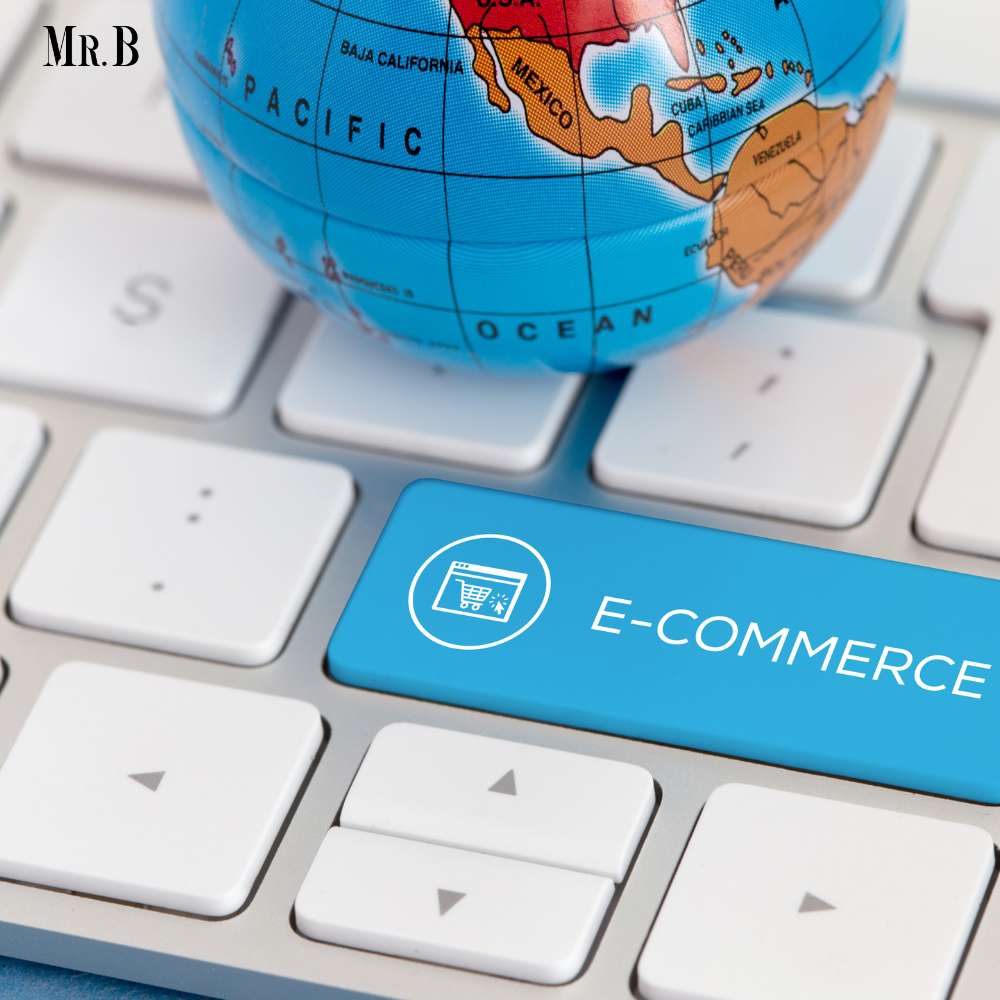As businesses have faced technological change in businesses, operations have become more efficient and productive. Small businesses have leveled up when compared to large-scale businesses. Be it any type of business, the inclusion of technology has made it easier for all to increase the reach of their business. The operating costs, communication process, and employee productivity are increased and improved to a great extent. The technological change in business extends the customer base while opening more avenues of expansion for businesses in the future. Brands can start expanding their operations overseas to bring in a level of higher authority. This has led to e-commerce platforms dominating the online shopping experience.
E-commerce provides ease of shopping without the hassle of going out and shopping. Let’s read more on What is the Impact of Technological Change in Businesses? Will E-commerce take over Completely?
The Impact of Technological Change in Businesses:
1. Operational Efficiency:
Technological advancements have streamlined various business processes. Automation, data analytics, and cloud computing have made it easier for companies to optimize their operations and reduce costs.
2. Customer Engagement:
Technology has transformed how businesses interact with customers. Social media, email marketing, and personalized advertising have allowed for deeper and more targeted engagement with consumers. This technological change in businesses helps to increase the customer base and engagement too.
3. Market Expansion:
The internet has opened doors for businesses to reach global audiences. Companies can now market and sell their products or services to customers around the world.

4. Data-Driven Decision-Making:
Big data analytics has become a critical tool for businesses. The insights derived from data analysis help in making informed decisions, from product development to marketing strategies. As technology provides access to data, this technological change in businesses is a must.
5. Enhanced Customer Experience:
Technology has improved the overall customer experience. Faster response times, personalized recommendations, and convenient online shopping have become the norm.
6. Remote Work:
The advent of digital collaboration tools has facilitated remote work. This has not only improved work-life balance but has also opened up access to a global talent pool for businesses. Remote work allows people to accept the technological change in businesses.
7. Sustainability:
Technology has allowed businesses to adopt eco-friendly practices. From reducing paper waste to optimizing energy consumption, sustainability has become a major business driver.
8. Competitive Advantage:
Embracing technology gives businesses a competitive edge. Companies that leverage the latest tech solutions can outpace their competitors and meet customer demands more effectively.
Will E-Commerce Take Over Completely?
E-commerce has experienced phenomenal growth, particularly in the last decade. With the convenience of online shopping, the proliferation of mobile devices, and improved security measures, e-commerce has become a powerful force in the business world. While it may not completely eliminate traditional retail, it is poised to dominate.
E-commerce offers several advantages that make it an attractive option for both businesses and consumers:

1. Convenience:
E-commerce allows customers to shop from anywhere at any time, eliminating the need to travel to physical stores.
2. Diverse Product Offerings:
Online marketplaces offer a vast array of products from various brands, often more than what can be found in a physical store.
3. Price Comparison:
Customers can easily compare prices and read reviews before making a purchase, ensuring they get the best deal.
4. Personalization:
E-commerce platforms use data to personalize the shopping experience, making product recommendations that are relevant to individual customers.
5. Global Reach:
Businesses can expand their customer base beyond geographical limitations, tapping into international markets.
6. Lower Operating Costs:
E-commerce businesses often have lower overhead costs compared to brick-and-mortar stores, enabling competitive pricing.
While e-commerce offers numerous benefits, it may not entirely replace physical retail, as in-store shopping still appeals to many consumers who value the sensory experience of seeing, touching, and trying products before buying. However, the dominance of e-commerce is undeniable, and traditional retailers are increasingly adapting to incorporate online strategies to remain competitive.

The Competitive Advantage of Technological Change:
The impact of technological change provides a distinct competitive advantage to businesses that embrace it. Here’s why:
1. Innovation:
Staying updated with technology allows businesses to innovate and create new products, services, or business models that cater to evolving consumer needs. The technological change in businesses allows avenues for innovation and expansion plans.
2. Efficiency:
Technology streamlines operations, reducing costs and optimizing resource allocation, ultimately leading to higher profit margins.
3. Scalability:
Tech solutions enable businesses to scale up their operations quickly and efficiently, responding to market demands and growth opportunities. This technological change in businesses helps to scale up the business growth opportunities.
4. Adaptability:
Companies that adopt technology can pivot and adapt to changing market conditions more swiftly than their competitors.
5. Market Insights:
Data analytics and technology tools provide valuable insights into customer behavior, helping businesses tailor their strategies for better results.
Why Brands Prefer Online Presence over Offline Presence?
1. Global Reach:
Online presence offers a broader reach, allowing businesses to tap into global markets. Brands can engage with international customers without the need for physical locations.
2. Lower Costs:
Maintaining an online presence typically incurs lower operational costs than managing physical stores. This cost efficiency is especially advantageous for small businesses.
3. Accessibility:
Customers can access an online store 24/7, offering unparalleled convenience. This accessibility increases the likelihood of sales and enhances the customer experience.
4. Data-Driven Marketing:
Online presence allows brands to gather and analyze customer data for targeted marketing campaigns. Personalized marketing increases customer engagement and conversion rates.
5. Flexibility:
Online businesses can quickly adapt to market changes and trends. They can update their product offerings and marketing strategies more readily than businesses with physical locations.
6. Sustainability:
An online presence is often considered more sustainable due to reduced energy consumption, paper waste, and the ability to operate remotely.
Conclusion:
The Impact of Technological Change on businesses is profound and far-reaching. The rise of e-commerce is a testament to technology’s transformative power, and while it may not entirely replace traditional retail, it is set to dominate. The competitive advantage gained from technological adoption is evident in innovation, efficiency, scalability, adaptability, and market insights. Brands increasingly prefer an online presence due to its global reach, lower costs, accessibility, data-driven marketing, flexibility, and sustainability. As technology continues to evolve, businesses that embrace these changes are more likely to thrive and stay competitive in the ever-changing market landscape.







